Abstract
OBJECTIVE: To identify newly arrived Vietnamese refugees' beliefs about tuberculosis (TB) and TB education needs. METHODS: In 1994, the New York State Health Department and the Centers for Disease Control and Prevention conducted a survey of 51 newly arrived adult Vietnamese refugees in two New York counties. After being trained in interview methods, two bilingual researchers asked 32 open-ended questions on the causes of TB, TB treatment, and the disease's impact on work and social relationships. RESULTS: Respondents correctly viewed TB as an infectious lung disease with symptoms such as cough, weakness, and weight loss. Hard manual labor, smoking, alcohol consumption, and poor nutrition were believed to be risk factors. Many respondents incorrectly believed that asymptomatic latent infection is not possible and that infection inevitably leads to disease. Nearly all respondents anticipated that having tuberculosis would adversely impact their work, family, and community activities and relationships. CONCLUSIONS: Targeted patient education is needed to address misconceptions about TB among Vietnamese refugees and to help ensure adherence to prescribed treatment regimens.
Full text
PDF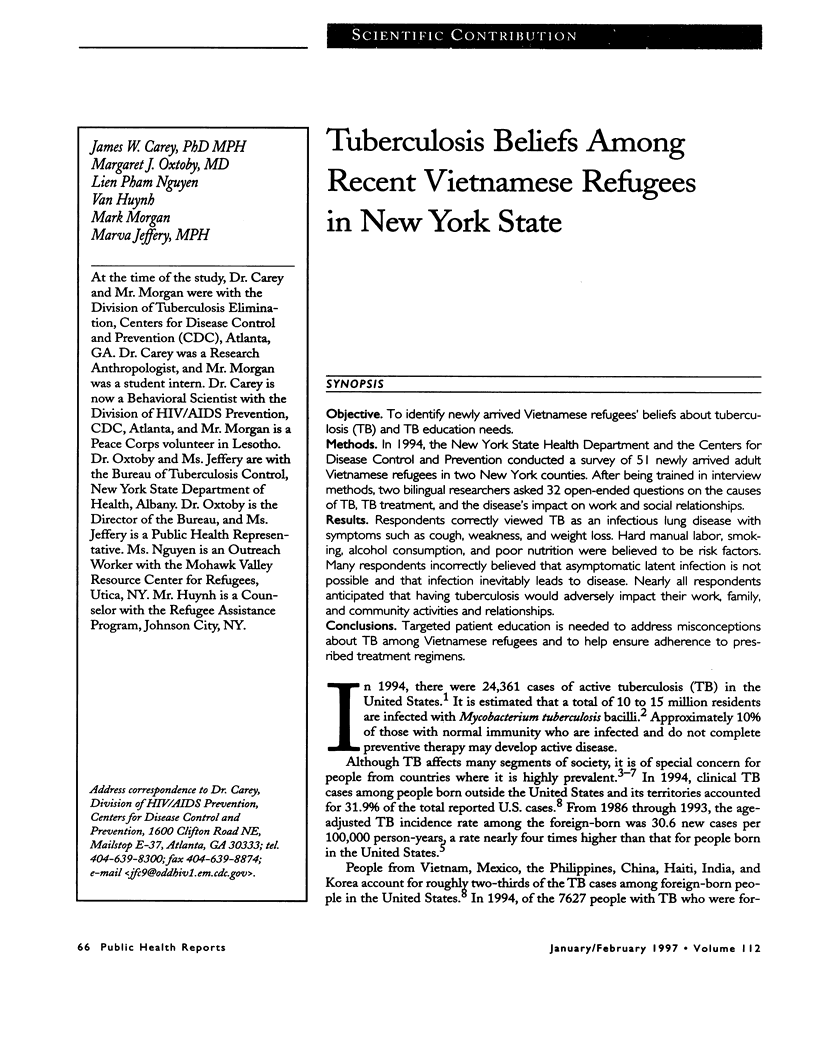
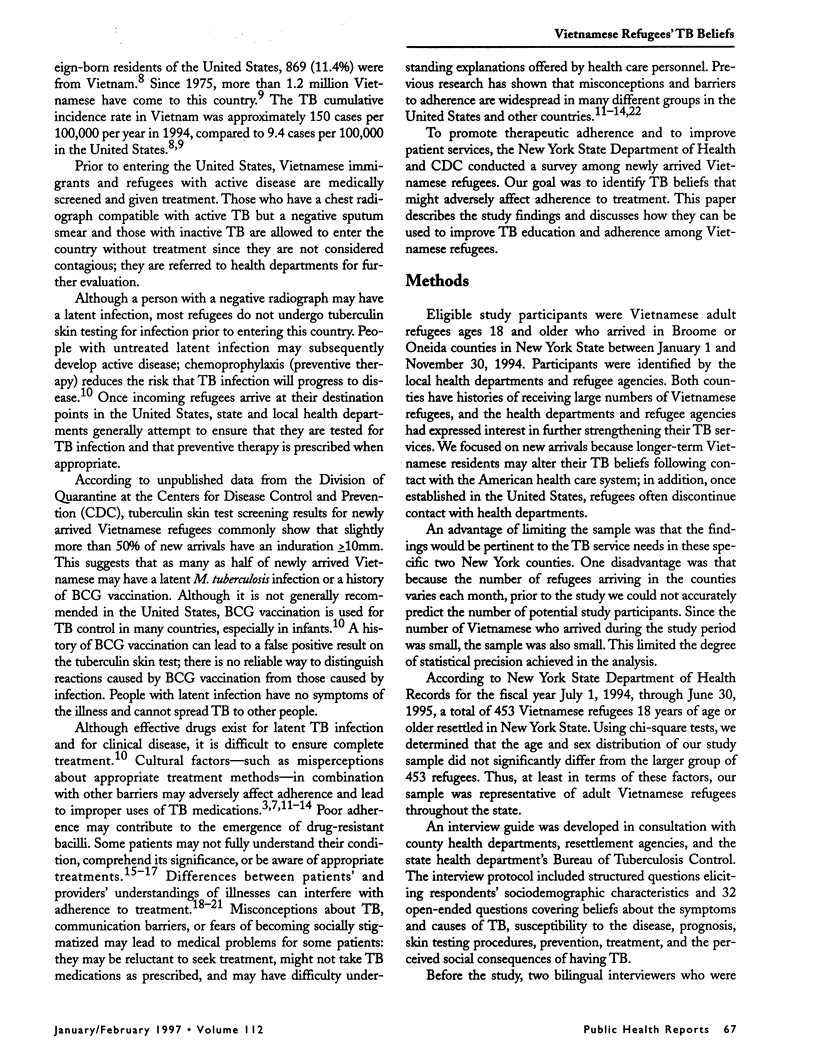
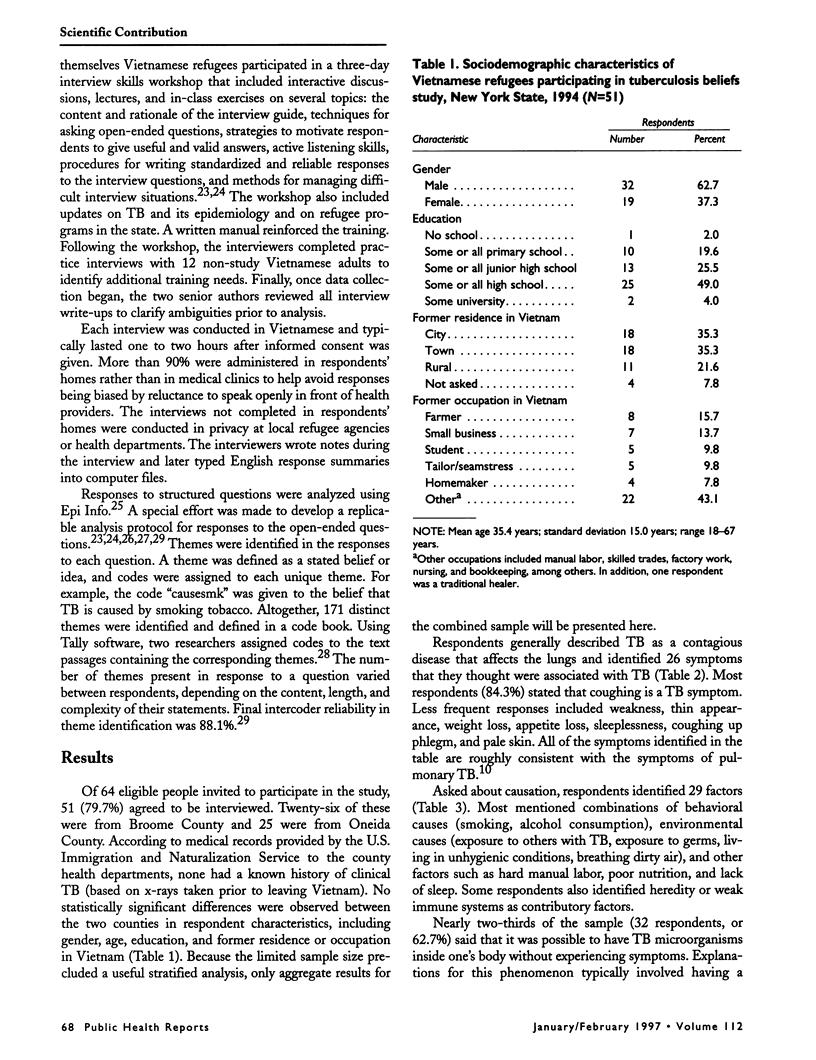
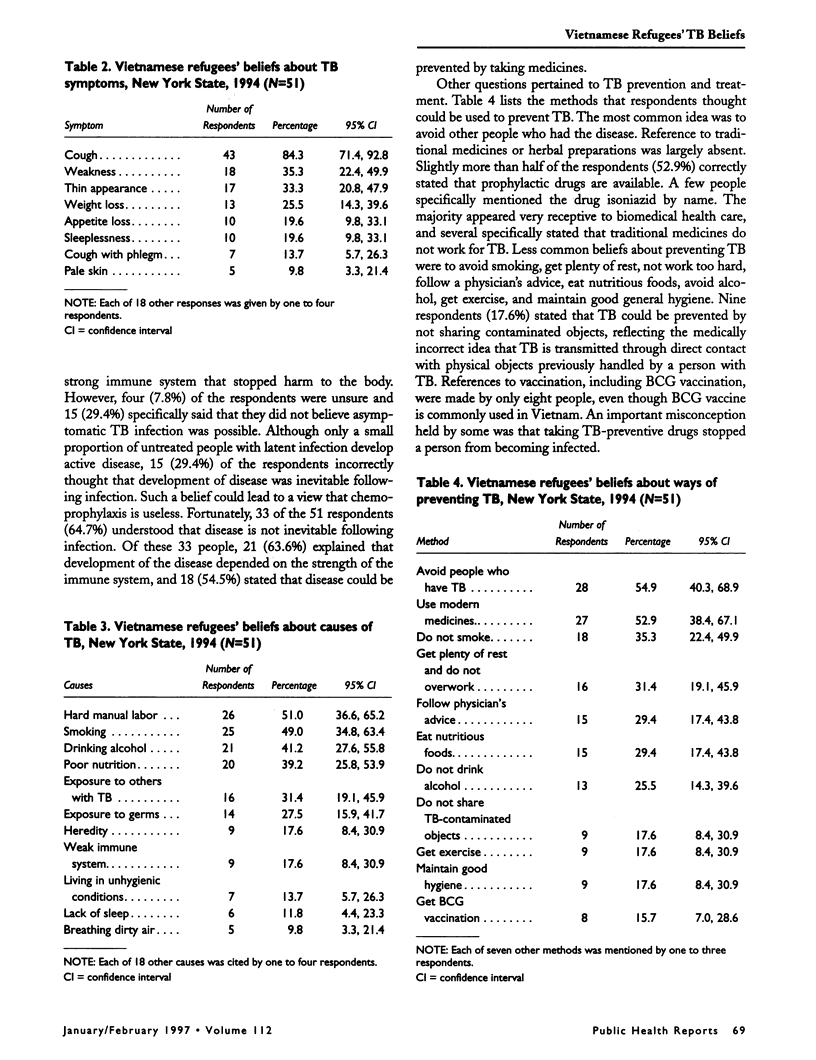
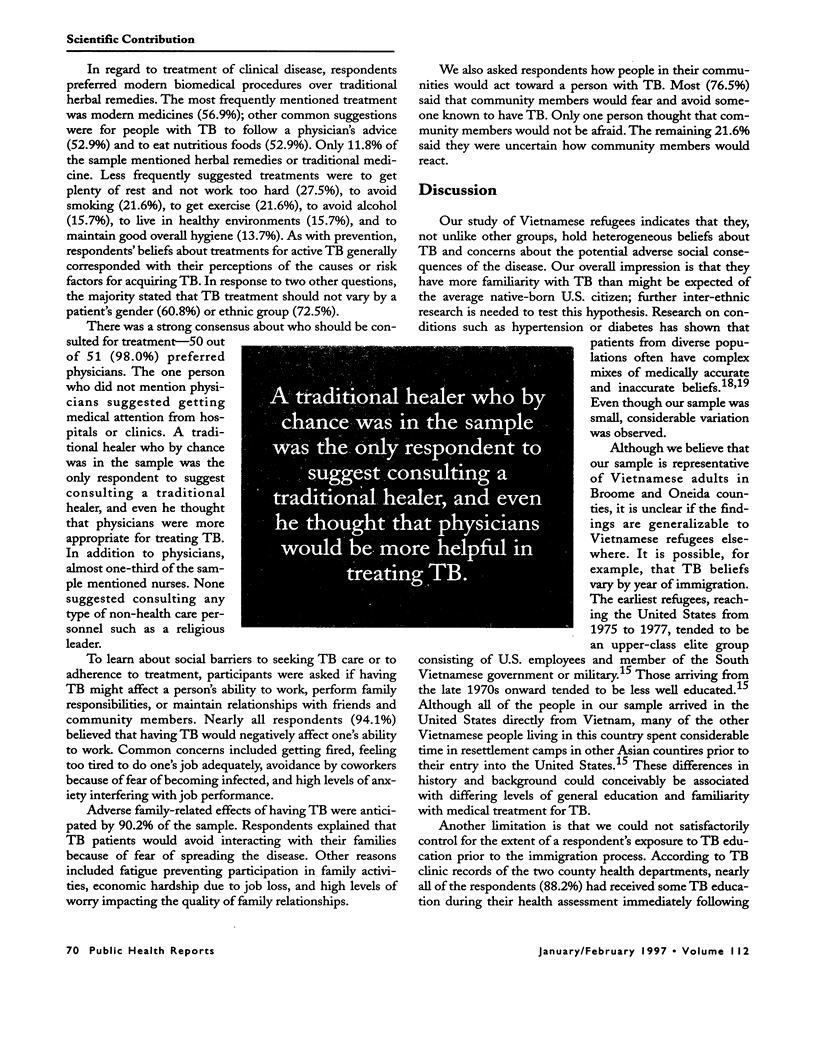
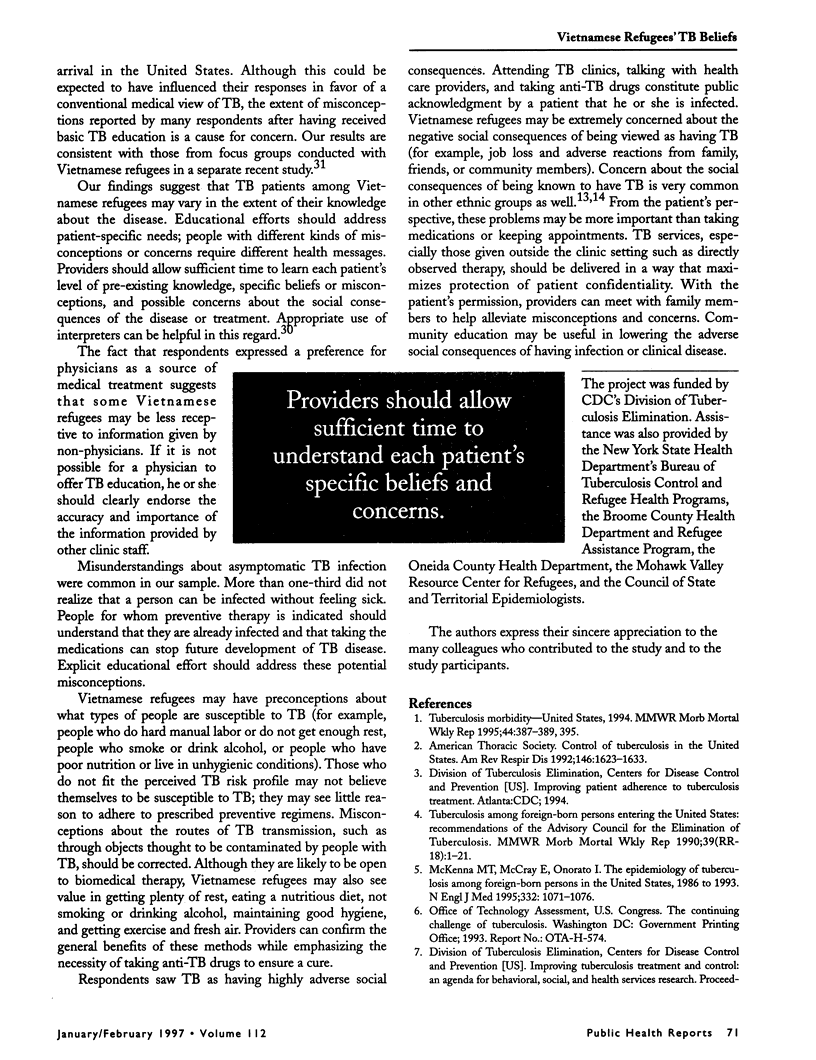
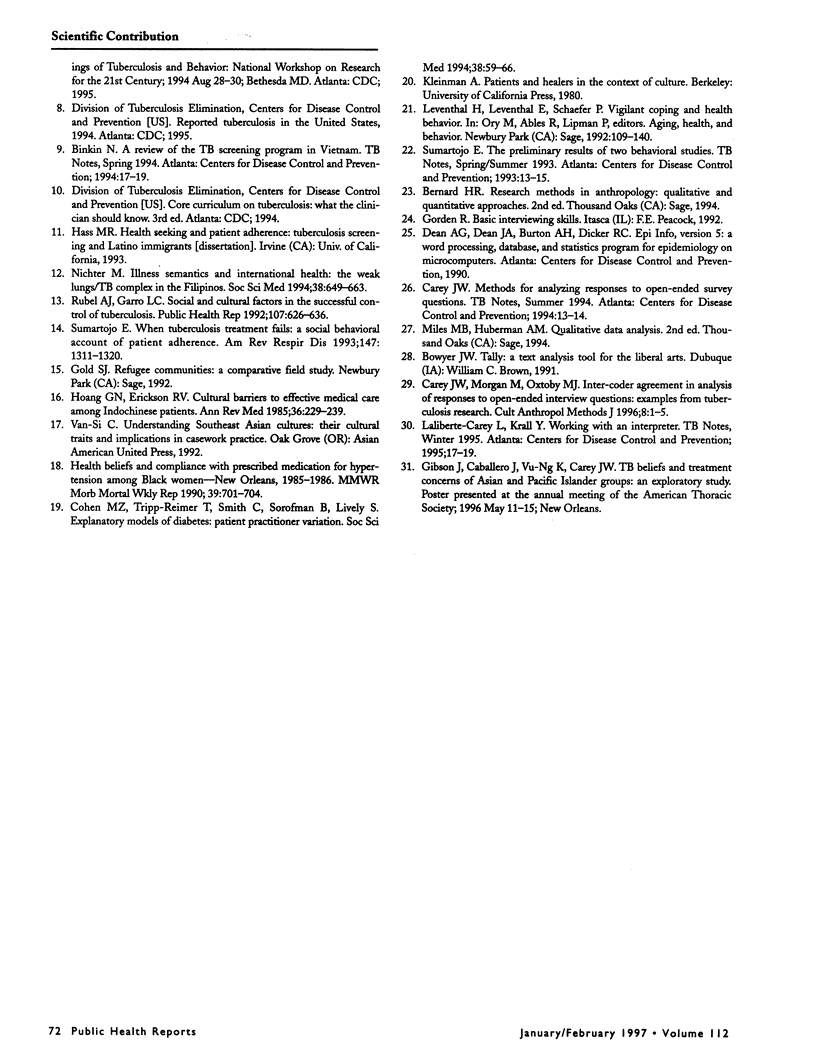
Selected References
These references are in PubMed. This may not be the complete list of references from this article.
- Cohen M. Z., Tripp-Reimer T., Smith C., Sorofman B., Lively S. Explanatory models of diabetes: patient practitioner variation. Soc Sci Med. 1994 Jan;38(1):59–66. doi: 10.1016/0277-9536(94)90300-x. [DOI] [PubMed] [Google Scholar]
- Hoang G. N., Erickson R. V. Cultural barriers to effective medical care among Indochinese patients. Annu Rev Med. 1985;36:229–239. doi: 10.1146/annurev.me.36.020185.001305. [DOI] [PubMed] [Google Scholar]
- McKenna M. T., McCray E., Onorato I. The epidemiology of tuberculosis among foreign-born persons in the United States, 1986 to 1993. N Engl J Med. 1995 Apr 20;332(16):1071–1076. doi: 10.1056/NEJM199504203321606. [DOI] [PubMed] [Google Scholar]
- McKenna M. T., McCray E., Onorato I. The epidemiology of tuberculosis among foreign-born persons in the United States, 1986 to 1993. N Engl J Med. 1995 Apr 20;332(16):1071–1076. doi: 10.1056/NEJM199504203321606. [DOI] [PubMed] [Google Scholar]
- Nichter M. Illness semantics and international health: the weak lungs/TB complex in the Philippines. Soc Sci Med. 1994 Mar;38(5):649–663. doi: 10.1016/0277-9536(94)90456-1. [DOI] [PubMed] [Google Scholar]
- Rubel A. J., Garro L. C. Social and cultural factors in the successful control of tuberculosis. Public Health Rep. 1992 Nov-Dec;107(6):626–636. [PMC free article] [PubMed] [Google Scholar]
- Sumartojo E. When tuberculosis treatment fails. A social behavioral account of patient adherence. Am Rev Respir Dis. 1993 May;147(5):1311–1320. doi: 10.1164/ajrccm/147.5.1311. [DOI] [PubMed] [Google Scholar]


